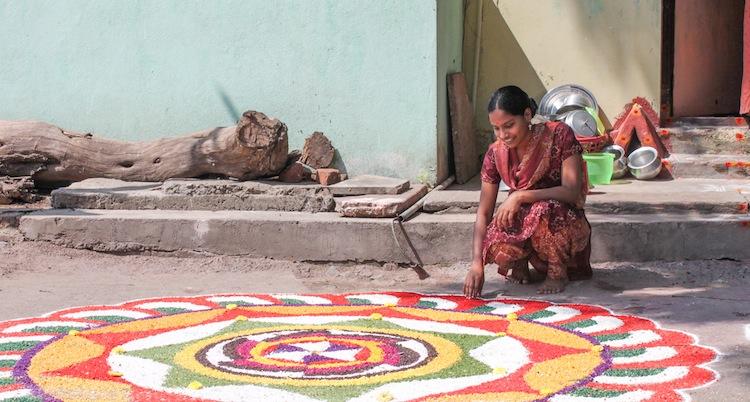Urban Lifestyles Changing Festival Traditions in India
Celebrations of the four-day harvest festival Pongal in India have changed dramatically with the urban lifestyle, and have tapered off altogether in some regions.

Two men knit garlands in the flower market in Puducherry, India, on Jan. 15, 2013. These garlands are used during the harvest festival to decorate the home and are offered in temples. Venus Upadhayaya/The Epoch Times

Venus Upadhayaya
Reporter
|Updated:





